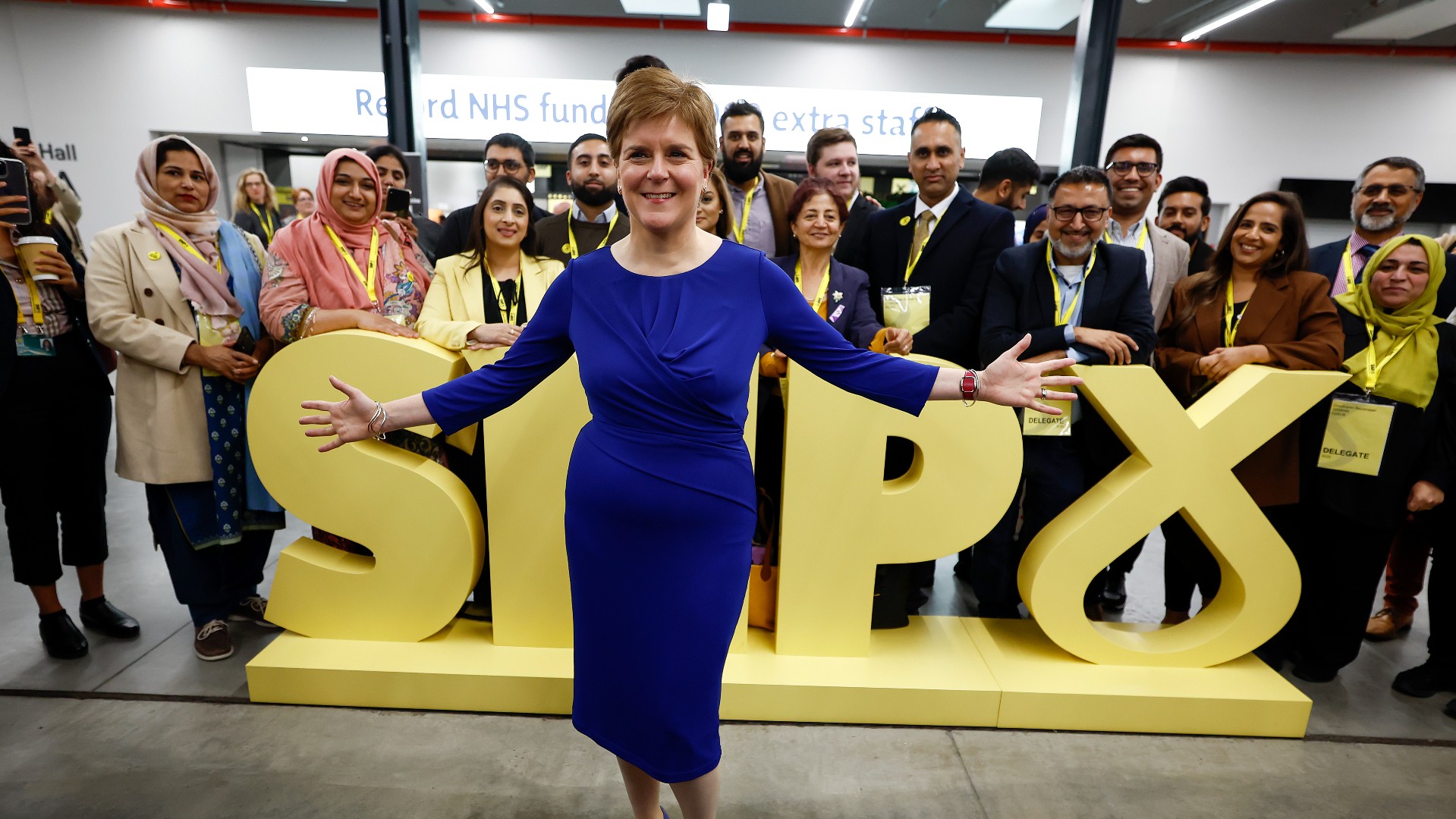What next for Nicola Sturgeon and the SNP?
After 15 years in power, Scottish National Party faces growing sense of stasis despite fresh independence vote push

A free daily email with the biggest news stories of the day – and the best features from TheWeek.com
You are now subscribed
Your newsletter sign-up was successful
Nicola Sturgeon is closing this year’s SNP conference amid fresh vows to deliver an IndyRef2, but pundits question whether the party is any closer to realising that dream after 15 years in power.
The Scottish National Party is undoubtedly “the dominant political force in Scotland”, said Holyrood. Sturgeon is the longest-serving first minister in the history of devolution, after the party secured a third successive term with a record vote share at the last Scottish election.
But “it is also a party under fire over its record in government on ferries, education and health, and one that is no longer seen as squeaky-clean, following scandals involving a number of high-profile figures at Holyrood, Westminster and at council level”, said the political magazine.
The Week
Escape your echo chamber. Get the facts behind the news, plus analysis from multiple perspectives.

Sign up for The Week's Free Newsletters
From our morning news briefing to a weekly Good News Newsletter, get the best of The Week delivered directly to your inbox.
From our morning news briefing to a weekly Good News Newsletter, get the best of The Week delivered directly to your inbox.
Reporting from the conference in Aberdeen, BBC Scotland political correspondent Philip Sim said that while “there was “total belief” in Sturgeon as leader, “in all honesty, this doesn’t feel like the gathering of a party that’s a year away from a referendum”.
What the papers say?
The SNP retains “what many believe is an unassailable position of dominance after the local elections of May 2022”, wrote left-wing academic Gregor Gall, a visiting scholar at Glasgow University’s School of Law, in an article on The Conversation. But “the cracks are starting to appear in the notion that Scotland is a de facto ‘one party state’ under the SNP”.
“The announcement of the intention to hold a further referendum on independence in October 2023 is likely to crystallise these tensions further,” he added.
Chris Deerin argued in The New Statesman that despite the “ideological smoothness of the handover of power” from former SNP leader Alex Salmond to Sturgeon in 2014, “the landscape of big, bold projects is depressingly sparse”, amid “a mysterious absence of strategic planning” and almost no cross-party collaboration.
A free daily email with the biggest news stories of the day – and the best features from TheWeek.com
Alex Massie in The Times suggested that the SNP’s “greatest achievement has been to make itself Scotland’s natural party of government”.
“The detail of success or failure in individual policy areas is less significant than the sense there is no plausible alternative to nationalist hegemony,” Massie continued. Yet “the national question overshadows everything else in Scotland these days, fostering the impression of a country in a state of some kind of suspended animation, being neither quite one thing nor the other. An unsettled Scotland, and a fractious one at that.”
SNP activists continue to insist that IndyRef2 will take place next October. “This is the most desperate of straws,” said Alan Cochrane in The Telegraph, “but given the wreckage of Sturgeon’s record it seems to be the only thing that keeps them going.”
Pointing to recent polling that suggested support for independence is falling, he added: “It is clear that she is running out of time, both in the eyes of her party and the public, who are finally waking up to the dreadful legacy of SNP rule.”
What next?
In “very handy timing for a party desperate to rally the pro-indy troops”, said Politico’s London Playbook, the UK Supreme Court will hear arguments this week on whether Holyrood has the power to call a second referendum even without the consent of Liz Truss’s government.
Sturgeon told the BBC’s Laura Kuenssberg yesterday that she was “confident” an October 2023 referendum “can happen”. The first minister said former Labour chancellor Alistair Darling, who campaigned against independent in 2014, had told the Scottish people that independence “would threaten our membership” of the EU, “imperil people’s pensions” and “cause a currency crisis”.
But “look at where we are right now”, Sturgeon continued. “Out of the European Union, pensions within hours of falling through, and the currency plunging. These are the consequences that people are paying the price of right now. And these all flow for Scotland from not being an independent country.”
Politico predicted that Scottish voters will “hear plenty more along those lines if the Truss growth plan doesn’t come good (or, let’s be honest, even if it does)”.
However, The Sunday Times argued that changing political fortunes south of the border could have a negative impact on the SNP. “There is growing concern in nationalist ranks that a resurgent Labour, with Sir Keir Starmer now more popular in Scotland than Sturgeon, could leave the SNP even further from its goal,” the paper reported.
With both Starmer and the Conservatives ruling out a second referendum in the foreseeable future, Sturgeon has warned that if the courts throw out the Scottish government’s case, her party will fight the next general election as a “de-facto referendum” in a bid to force negotations.
But “will a politician who has built her reputation on being sensible and measured really go for the nuclear option and use a general election to force change?” asked Rachel Wearmouth in The New Statesman.
“Or will Sturgeon decide she has taken the movement for independence as far as she can? Her address today will be pored over for signs on how she views the future.”